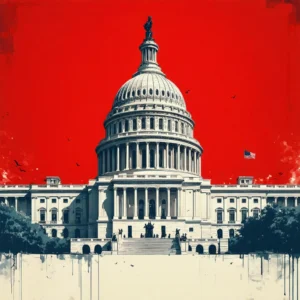
Introduction
The recent disciplinary action against a former BNP Paribas lawyer has sparked a conversation about professional conduct in high-stakes legal environments. The individual, identified as Benedict Foster, faced significant financial penalties as a result of his use of inappropriate nicknames and offensive language towards colleagues. This article examines the intricacies of the case within the broader context of regulatory compliance, workplace ethics, and the importance of maintaining professional standards within the financial and legal sectors.
Incident Overview and Context
Background and Circumstances
Benedict Foster, previously serving as the head of legal for BNP Paribas London’s debt and equity team, was found to have used derogatory nicknames such as “the Idiot,” “Pol Pot,” “Jabba the Hutt,” and others in the workplace. The misconduct surfaced during an exit interview, thus prompting an internal investigation that later escalated to the Solicitors Disciplinary Tribunal (SDT). The tribunal established that the conduct was in breach of the Solicitors Regulation Authority (SRA) principles that demand not only professional behavior but also the promotion of diversity, equity, and inclusion in legal practice.
This incident became particularly significant given that it occurred during the challenging period of the COVID-19 pandemic—a time when the shift to remote work and the implementation of new IT systems further exacerbated workplace stress. While the defense argued that these circumstances contributed to the stressful environment leading to such behavior, the tribunal ultimately held Foster accountable for his actions.
Regulatory and Ethical Implications
The case presents several critical lessons for legal professionals and corporate governance bodies:
- Professional Standards: The SRA principles emphasize the importance of integrity and proper behavior. Any deviation from these standards risks tarnishing professional reputations and undermining trust in legal institutions.
- Accountability: Regulatory bodies are increasingly vigilant in enforcing ethical guidelines. This case serves as a reminder that all legal professionals must adhere to strict conduct codes.
- Workplace Culture: Offensive language and demeaning nicknames can seriously harm the integrity of an organization’s culture, affecting both employee morale and institutional reputation.
Furthermore, Foster’s actions not only impacted his colleagues but also touched upon broader issues regarding discrimination, an ever-relevant concern in modern workplaces.
Detailed Analysis and Financial Repercussions
Financial and Professional Repercussions
The case culminated in a fine of £15,000 and an additional £16,000 in costs imposed on Benedict Foster. This financial penalty illustrates the serious consequences that can arise from violating established codes of conduct. The tribunal’s decision underscores the notion that ethical breaches, regardless of the circumstances, have tangible economic repercussions for professionals.
A simplified table outlining the disciplinary measures is provided below:
| Aspect | Details |
|---|---|
| Nickname Violations | “Jabba the Hutt”, “The Idiot”, “Pol Pot”, “Mad Paul”, “Hu She”, “Biriyani”, “Twittering Fool” |
| Offensive Language | Use of profanity and derogatory remarks |
| Fine | £15,000 |
| Additional Costs | £16,000 |
| Institutional Context | BNP Paribas and the SRA |
Lessons for Corporate Governance and Legal Practice
The disciplinary action offers several insights into improving corporate and legal practices:
- Enhanced Compliance Monitoring: Firms should regularly conduct internal reviews to ensure adherence to ethical and professional standards.
- Implementing Robust Training Programs: Continuous professional development on workplace ethics and appropriate communication is vital.
- Establishing Clear Reporting Mechanisms: Employees must feel empowered to report unethical behavior without fear of reprisal.
These mechanisms not only safeguard the interests of the workforce but also strengthen the integrity of the legal profession.
Impact on the Legal Community and Future Outlook
Community and Professional Repercussions
A case as high-profile as this prompts a reevaluation of established norms within legal communities. Professional bodies, legal firms, and corporate governance teams are forced to reflect on their existing practices and make necessary adjustments. The ensuing discussions and potential revisions in ethical guidelines help create a framework for better accountability and improved professional behavior in the industry.
Recommendations Moving Forward
In light of the incident, several recommendations emerge for legal professionals and corporate entities:
- Promotion of Diversity and Inclusion: Establish and enforce policies that promote a respectful and inclusive workplace environment.
- Regular Ethical Training: All employees, particularly those in leadership positions, should undergo regular training on ethical conduct and cultural sensitivity.
- Strengthening Oversight Mechanisms: Institutions should develop robust systems for monitoring and managing workplace behaviors to prevent recurrence of such incidents.
- Transparent Disciplinary Processes: Clear and transparent procedures for handling ethical breaches help maintain trust in regulatory and legal frameworks.
Moreover, the broader legal community should view this case as an impetus to foster a culture of accountability and ethical excellence, ensuring that professional environments are both supportive and conducive to high standards of legal practice. As legal institutions continue to adapt to the evolving landscape of workplace dynamics, the emphasis on ethical conduct, coupled with diligent oversight, remains paramount in maintaining the public’s trust and upholding the dignity of the legal profession.




